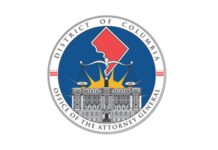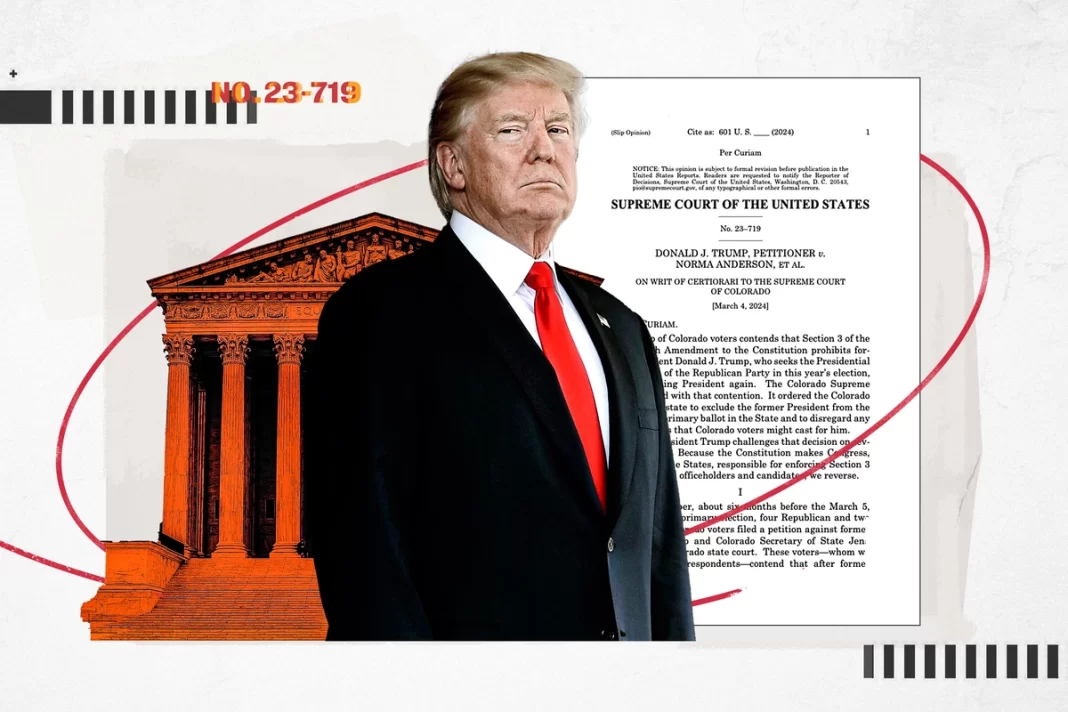The unanimous decision did see some splintering over Congress’ authority under the 14th Amendment.
WASHINGTON—The Supreme Court issued a landmark, unanimous decision on March 4 clarifying that states don’t have authority under the 14th Amendment to disqualify candidates for federal office.
The March 4 opinion centralized decision-making with Congress and effectively negated the possibility of multiple, ongoing court battles in states such as Colorado.
It also nullified rulings that former President Donald Trump was disqualified in Maine and Illinois and removed the disqualification option from state judges, whose decisions could have been used to justify similar moves in other states.
According to the court’s liberal justices, the decision also precluded the possibility of federal courts weighing the disqualification issue.
“It now seems all but certain Trump will be on the November ballot,” University of Michigan professor Barbara McQuade told The Epoch Times.
“Responsibility for enforcing Section 3 against federal officeholders and candidates rests with Congress and not the States,” the Supreme Court’s order reads.
Ms. McQuade, who left the Justice Department amid a wave of departures at the outset of President Trump’s administration, favors federal legislation disqualifying the former president but noted “that outcome seems unlikely in light of the split of power between the House and Senate.”
Perhaps foreshadowing a rocky campaign cycle, Justice Amy Coney Barrett joined the liberal justices in criticizing the extent to which the majority went in its opinion amid a “volatile” election season.
“In my judgment, this is not the time to amplify disagreement with stridency,” she wrote. “The Court has settled a politically charged issue in the volatile season of a Presidential election. Particularly in this circumstance, writings on the Court should turn the national temperature down, not up.”
What Does the Supreme Court Ruling Mean?
The Supreme Court issued a per curiam, or unanimous, judgment saying that states such as Colorado cannot rule candidates for federal office disqualified from appearing on state ballots.
Instead, it drew from the 14th Amendment’s wording to grant that authority to Congress while providing guidelines for acceptable legislation. More specifically, it pointed to the wording in Section 5 of the Amendment, which reads, “The Congress shall have power to enforce, by appropriate legislation, the provisions of this article.”
“The terms of the Amendment speak only to enforcement by Congress, which enjoys power to enforce the Amendment through legislation pursuant to Section 5,” the opinion reads.
By Sam Dorman
















































